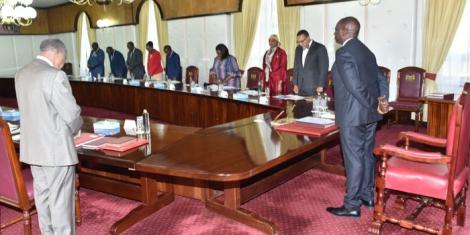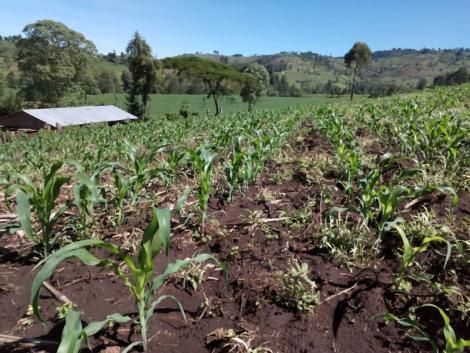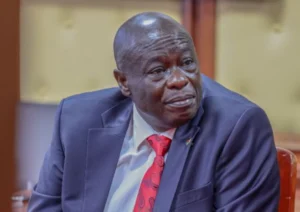On Monday, October 3, Kenya lifted the ban imposed on Genetically Modified Organisms (GMO) crops, to address food shortage as a result of drought.
In a meeting Chaired by President William Ruto in State House Nairobi, the cabinet rescinded the decision that prohibited the cultivation of GMOs based on technical reports on the adoption of biotechnology.
The cabinet explained that the decision was among the medium-term measures put in place to address the current food shortage caused by the drought in the country.
“Cabinet rescinded its earlier decision made on November 8, 2012, prohibiting the open cultivation of genetically modified crops and the importation of food crops and animal feeds produced through biotechnology innovations,
“The executive action open cultivation and importation of White (GMO) Maize are now authorized,” read the statement in part.

The government further expounded that there was a need to redefine the country’s agriculture and among the recommendations made by local and international experts was the adoption of crops that are disease and pest-resistant.
“The directive was issued following recommendations of Task Force to Review Matters Relating to Genetically Modified Foods and Food Safety, and in fidelity with the guidelines of the National Biosafety Authority (NBA) on all applicable international treaties including the Cartagena Protocol on Biosafety (CPB).
“Today’s Cabinet decision builds on it and also extends its benefits to other agricultural and manufacturing sectors,” stated the dispatch from State House.
The executive pointed out a decision to legalize the commercialization of the hybrid species of cotton, Bacillus Thuringiensis (BT), which was resistant to the African Ballwarm, consequently revamping textile production.
When former Public Health Cabinet Minister Beth Mugo announced the ban, she explained that there were safety concerns about the GMOs.
On April 13, the United States of America Trade Representative (USTR) office protested the prohibition stating that the measure not only curtailed America’s exports but also curtailed America’s efforts to help Kenya to mitigate the effects of drought.
Subscribe to our You Tube channel at Switch TV.
USTR noted that some of the crops such as soy, maize, and distiller-dried grains were essential in the manufacture of animal feeds which are essential in animal husbandry.
















